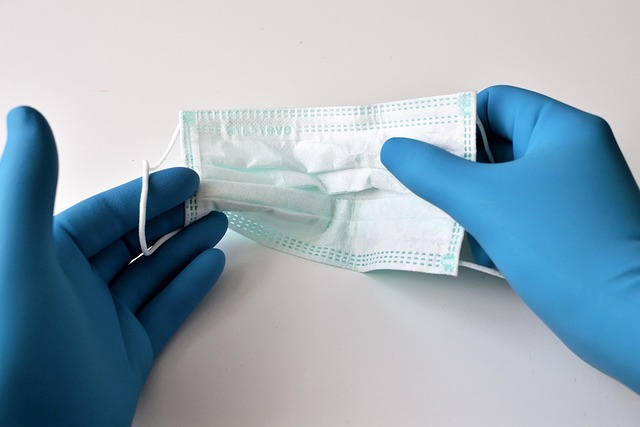Custom liability coverage is vital in healthcare to protect professionals from financial losses due to malpractice lawsuits. This tailored insurance mitigates risks specific to specialties, patient volumes, and procedures. By offering comprehensive protection, it allows providers to focus on care without worrying about costly settlements, fostering innovation and improving patient outcomes. The process involves reporting incidents, claim investigations, and settlements under customized policies addressing diverse healthcare needs.
Stay protected with medical liability coverage—an indispensable shield for healthcare professionals. Understanding this type of insurance goes beyond mere compliance; it’s about mitigating risks and ensuring patient safety. This comprehensive guide explores essential aspects, from custom liability coverage tailored to your practice’s unique needs to the claims process and how it enhances overall healthcare quality. Uncover why every healthcare provider should prioritize this protection.
- Understanding Medical Liability Coverage: Essential Protection for Healthcare Professionals
- Customized Coverage: Tailoring Insurance to Your Practice's Unique Needs
- Why Healthcare Providers Need Liability Insurance: Risk Mitigation Strategies
- Types of Medical Liability Policies: General, Professional, and More
- The Claims Process: What to Expect When Filing a Liability Claim
- Enhancing Patient Safety: How Liability Coverage Can Improve Healthcare Quality
Understanding Medical Liability Coverage: Essential Protection for Healthcare Professionals

Medical Liability Coverage, also known as malpractice insurance, is an essential safety net for healthcare professionals. It protects doctors, nurses, and other medical staff from financial loss in case a patient files a lawsuit due to perceived negligence or medical errors. This coverage is crucial, especially considering the high-stakes nature of healthcare where even minor missteps can have significant consequences for patients’ well-being.
Custom liability coverage is tailored to meet the unique needs of each healthcare provider. It compensates for legal fees and damages awarded in lawsuits, offering financial security during potentially lengthy legal battles. With medical malpractice claims being a real and persistent risk, having this coverage ensures that healthcare professionals can focus on patient care without the constant worry of overwhelming financial exposure.
Customized Coverage: Tailoring Insurance to Your Practice's Unique Needs

In the realm of healthcare, where every decision carries significant weight, having the right medical liability coverage is non-negotiable. Customized liability coverage allows healthcare professionals to tailor their insurance to align perfectly with their practice’s unique needs. This personalized approach ensures that no stone is left unturned when it comes to protecting against potential risks and liabilities. By evaluating factors like specialty, patient volume, and specific procedures performed, insurers can craft policies that offer comprehensive protection tailored just for you.
Unlike one-size-fits-all insurance plans, customized coverage accounts for the nuances of your practice. For instance, a small rural clinic with a focused patient base may require different coverage than a bustling urban hospital treating a diverse range of conditions. Customization ensures that your policy reflects these differences, providing peace of mind and financial security when what matters most is patient care and outcomes.
Why Healthcare Providers Need Liability Insurance: Risk Mitigation Strategies

Healthcare providers, from doctors and nurses to specialists and clinics, face unique risks that demand comprehensive protection. Custom liability coverage in healthcare is essential for mitigating potential financial losses resulting from medical errors, accidents, or malpractice suits. These incidents can lead to significant legal repercussions and costly settlements, which is why having the right liability insurance is crucial.
Liability insurance acts as a shield, providing financial security against claims and protecting healthcare professionals from bearing the brunt of financial burden. By investing in custom liability coverage tailored to their specific practices, providers can ensure they are prepared for any unforeseen circumstances. This strategic risk mitigation approach allows them to focus on patient care without constant worry, knowing that their business interests are safeguarded.
Types of Medical Liability Policies: General, Professional, and More

In the healthcare sector, ensuring comprehensive protection against potential risks is paramount, which is why understanding various medical liability policies is essential for professionals and institutions alike. These policies are designed to safeguard healthcare providers from financial losses incurred due to medical malpractice claims. The primary types include General, Professional, and Specialized liability coverage, each catering to distinct needs within the industry.
General liability insurance offers a broad protection net, covering general operations and common risks encountered in healthcare settings. Professional liability, on the other hand, focuses specifically on medical negligence and malpractice, providing coverage for errors or omissions during patient care. Additionally, customized liability coverage can be tailored to meet specialized needs of niche practices or unique healthcare facilities, ensuring every aspect is addressed effectively.
The Claims Process: What to Expect When Filing a Liability Claim

When filing a medical liability claim, understanding the claims process is crucial for navigating this complex landscape. The journey begins with reporting the incident to your insurance provider as soon as possible. This prompt action ensures a smoother process and allows for quicker resolution. Your healthcare provider’s office or legal team will typically initiate this step by filling out a claim form detailing the circumstances of the event, including patient information, dates of service, and the nature of the alleged liability.
After submission, the insurance company will review the claim, investigate the incident, and assess its validity. This investigation may involve gathering medical records, witness statements, and expert opinions to determine liability and the extent of damages. Communication throughout this process is key; keep your provider and insurer updated on any relevant developments or documentation requests. The claims adjuster will notify you of their findings, and if the claim is approved, they will provide a settlement offer tailored to the specific case, ensuring adequate compensation for all associated costs and losses.
Enhancing Patient Safety: How Liability Coverage Can Improve Healthcare Quality

Custom liability coverage in healthcare plays a pivotal role in enhancing patient safety and overall healthcare quality. By providing financial protection against potential medical malpractice lawsuits, this coverage empowers healthcare professionals to focus on delivering the best possible care without constant fear of significant financial repercussions. With tailored liability insurance, doctors, nurses, and hospitals can invest resources into advanced training, state-of-the-art equipment, and improved protocols, all of which contribute to minimizing medical errors and improving patient outcomes.
Moreover, customized liability coverage fosters a culture of continuous improvement within healthcare institutions. Knowing that they are shielded from substantial financial losses encourages providers to adopt innovative practices and stay abreast of the latest medical advancements. This not only strengthens patient trust but also drives the industry towards higher standards of care, ultimately benefitting everyone involved.
